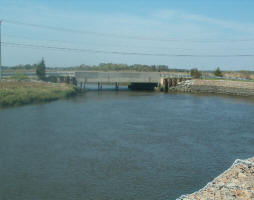 Israel to focus on desalination to deal with water woes
Israel to focus on desalination to deal with water woes
Plan proposes creation of desalination plants on offshore man-made islands because of the difficulty in finding land for building such plants on beaches.
Israel will have to invest NIS 200 billion over the next four decades in the development of water installations, but will also be in a position to do so without raising the cost of water to the consumer, according to the blueprint plan for water development recently approved by the Water Authority Council.
The plan also proposes the creation of desalination plants on offshore man-made islands because of the difficulty in finding land for building such plants on the beaches.
Based on the new plan, expanding the availability of water in Israel will focus on desalination plants. This will make it possible to draw less water from natural water sources, thereby allowing them to be restored to higher levels. The focus on desalination also lessens the risks posed by higher reliance on water resources like Lake Kineret.
The amount of water allocated to agriculture will not drop, however it will be based on purified sewage and non-potable water drawn from water holes.
The plan proposes forging ahead with the goals set by the government, reaching 750 cubic meters of desalinated water in a decade, or double the current capacity.
Beginning in the next decade, it will be necessary to double desalination capacity again - by 2050.
The calculations in the plan show that Israel will require an additional 1.5 billion cubic meters of water, in the coming years, beyond that which is available to it. A third will be used to supply Jordan and the Palestinian Authority.
The authors of the plan, members of the planning department of the Water Authority, estimate that consumption per person per year will not reach 110 cubic meters, as previous estimates claimed. It is expected to stand at 95 cubic meters, in spite the expected rise in standards of living. The main reasons for this are the greater efficiency in water usage as well as the use of purified sewage water in public gardens.
The authors of the plan claim that there is a delay in the building of installations for purifying water that has been polluted or which became salty.
This delay stems from problems they say are being caused by the Environment Ministry, which issues permits for the removal of the salt that is collected during the purifying process, and subsequently dumped into the sea.
"As a result, dozens of such projects are not advancing and the rehabilitation of natural water sources is being undermined," the blueprint states.
A senior source in the Environment Ministry strongly denied these claims. He said that the Water Authority did not make use of any of the locations designated for dumping salt into the sea. He said that the ministry agreed to consider authorizing the dumping of salt in any place where there were polluted wells, but that the Water Authority did not ask the ministry to do so.
The source also claimed that the Water Authority was expected to present plans in which they would detail the amount of water they expected to clean, but that no such plans were presented to the Environment Ministry.
The Water Authority Council recently approved a plan for water development for the next 40 years which will require investment of NIS 200 billion (US$ 55 billion) and avoid raising the cost to the consumer.
The Israeli government already has a goal of 750 million m³/year by 2020, but will have to double that figure before 2050, the plan says. This is based on a likely consumption per person of 96 m³ in spite of an expected rise in living standards.
| Contact information |
Zafrir Rinat, Haaretz
|
|---|---|
| News type | Inbrief |
| File link |
http://www.haaretz.com/print-edition/news/israel-to-focus-on-desalination-to-deal-with-water-woes-1.386541 |
| Source of information | Haaretz |
| Keyword(s) | desalination |
| Subject(s) | ANALYSIS AND TESTS , CHARACTERISTICAL PARAMETERS OF WATERS AND SLUDGES , DRINKING WATER , DRINKING WATER AND SANITATION : COMMON PROCESSES OF PURIFICATION AND TREATMENT , ENERGY , HYDRAULICS - HYDROLOGY , INDUSTRY , INFRASTRUCTURES , POLICY-WATER POLICY AND WATER MANAGEMENT , SANITATION -STRICT PURIFICATION PROCESSES , SLUDGES , TOURISM - SPORT - HOBBIES , WATER QUALITY |
| Relation | http://www.desalination.biz/news/news_story.asp?src=nl&id=6145 |
| Geographical coverage | Israel, |
| News date | 28/09/2011 |
| Working language(s) | ENGLISH |
 you are not logged in
you are not logged in





